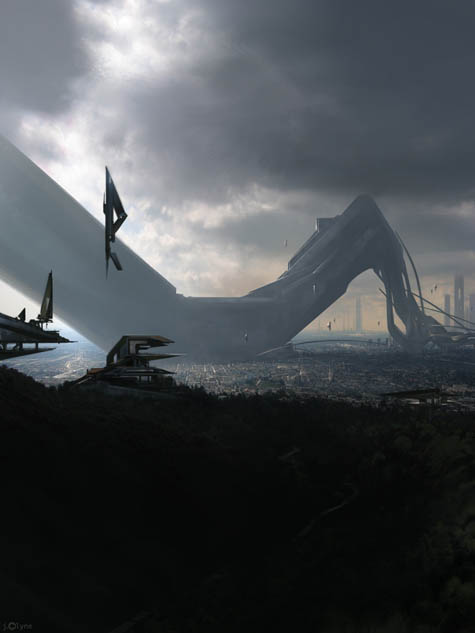 Defining science fiction is an elusive practice. One can point to thousands of wholly different definitions and never get a full picture of what it means. Regardless, I'm going to see if I can come up with a decent enough definition for such a powerful literary genre.
Defining science fiction is an elusive practice. One can point to thousands of wholly different definitions and never get a full picture of what it means. Regardless, I'm going to see if I can come up with a decent enough definition for such a powerful literary genre.What is it about?
The question should probably be "what isn't it about?" but for this argument we have to understand what makes up this genre. First, to the easy stuff:
- The Future
SF is primarily about the future, or more simply, it is about tomorrow. We can look to a vast majority of SF works and all of them have dealt with the future. When coming to this point, however, we have to note the location of literature in its written history. 1984 by George Orwell was written in 1948, roughly, and dealt with the year 1984, which was then considered to be the future. Obviously that year is long past us, but Orwell's vision is still one of the future. It doesn't matter that the year has past. For the time that it was written it had the future in mind and we have to consider its placement in the literary timeline. - Science/Technology
Well, the word science is in the name of SF, so it's pretty obvious this would be a part of it. The interesting thing about science and technology is that it is a vague point. Star Wars certainly shows a vast array of technological achievements for the semi-fantastical society that exists within the movies, but such technology is likely not rooted in science. SF only requires, for the most part, that science or technology exists. Some stories delve deeper into realistic science, while others skip past that, or ignore it.
Star Wars is science fiction because most people don't watch it and spend the whole time pointing out the logical fallacies in the science. There isn't an expectation of the story to be realistic. One can watch it and forget they are watching something that isn't real.
When you write science fiction you don't have to follow all the rules. Faster-than-light travel is, theoretically speaking, impossible. Einstein ruined that golden nugget of fun for everyone. But you can still write about FTL travel and ignore the rules. We can create wormholes and jumpdrives and warpdrives and not worry about it being completely real. FTL is a device that is, in and of itself, a fantasy, because, so far as we know, mankind will never achieve it. Even wormholes are not proven, and may very well be a fantasy too.
Science fiction, essentially, speculates upon the future, or a future. Star Wars is a possible future of a society that probably doesn't exist. Still, it's a future. Star Trek, for what it's worth, is a possible future of our world and galaxy. Spaceships, however, don't have to be a part of SF. In fact, they aren't even close to a requirement. One could easily have a story about hackers and have it be called science fiction, and in fact this has happened before. 1984 isn't a book about space travel, but about a totalitarian future. There are a million possibilities in SF.
So we have future and science/technology, and some rules about how those are incorporated. How would you define science fiction, then? Here's how I would define it:
Science fiction is a form of literature that deals with the future in some way and includes science or technology. It speculates on what might be, what could be, and what will be.
What do you think? Does that adequately describe it?

1 comment:
Star Wars is not a future, it is a past.
Post a Comment